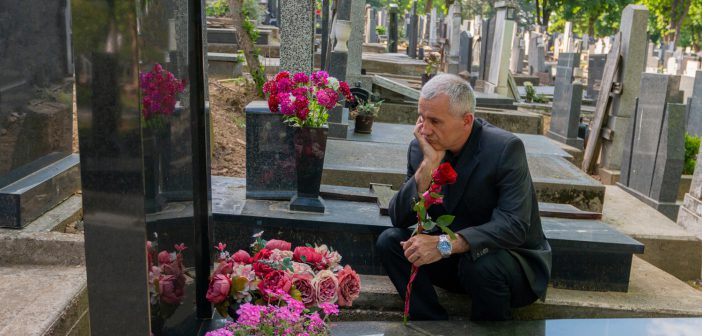Losing someone close to you is one of life’s most challenging experiences. This time often brings a wave of overwhelming emotions, including grief, confusion, and even numbness. It’s easy to feel isolated or unsure of where to begin the healing journey. But while healing may seem distant, there are ways to gradually find relief and clarity. Building a personal path to healing doesn’t have to follow a strict formula. It’s about finding small, manageable steps that allow you to process and honor your loss in a meaningful way.
Acknowledge Your Emotions
The first part of healing often involves allowing yourself to feel whatever comes up. Grief isn’t a one-size-fits-all experience. Some days, you might feel sadness, anger, or relief, while other days, you could feel completely numb. Give yourself permission to feel these emotions without judgment. Trying to suppress or ‘stay strong’ often backfires, leading to an emotional backlog that can resurface later. Even though society sometimes sends the message to ‘move on,’ letting your emotions have space is a crucial part of the healing journey.
One helpful approach is journaling. Writing can serve as an outlet for emotions you may not want to share with others. You might find that putting feelings on paper helps you understand them better or brings you a small sense of relief. If you’re not comfortable with journaling, even taking a few minutes each day to acknowledge how you feel can be beneficial.
Seek Support When Needed
Grief often feels isolating, but it’s important to remember that you don’t have to face it alone. Leaning on family, friends, or support groups can provide relief, even if just momentarily. Speaking with others who understand your pain can offer comfort and remind you that you’re not alone. Sometimes, sharing memories or talking through your feelings can lighten the load, even if it’s just for a brief time.
Professional support can also be beneficial. Therapists, counselors, or grief coaches are trained to help you process difficult emotions, offering you techniques to cope in constructive ways. Therapy isn’t about ‘fixing’ your grief but learning how to handle it without feeling overwhelmed.
When dealing with the practical aspects of a sudden loss, immediate, compassionate assistance can make an enormous difference. For families and friends coping with the unexpected, accessing quick suicide cleanup assistance provides a safe, efficient way to handle the scene. Having professional support to manage these tasks can ease some of the emotional burden, giving you more space to process your loss.
Create Meaningful Rituals
Creating personal rituals is another way to honor your loved one’s memory. Rituals don’t need to be formal or complex; they’re about keeping a connection in a way that feels personal to you. This might involve setting aside time each week to look through old photos, listen to their favorite songs, or visit a place that was special to them. These acts can bring comfort by celebrating their life rather than focusing solely on their absence.
Consider creating a memory box where you collect small mementos that remind you of happy times together. Letters, trinkets, or photos can fill this box, and revisiting it when you’re ready can offer moments of peace and connection. Some people also find comfort in creating a garden, artwork, or writing something in their honor. The important thing is that it feels right for you and reflects your relationship with them.
Take Care of Your Physical Health
Grieving can take a toll not only on mental health but on physical well-being, too. During this time, basics like eating well, staying hydrated, and getting enough sleep often become secondary. However, even simple acts of self-care can make a big difference in how you feel day-to-day. Regular meals, gentle exercise, and fresh air can boost your mood and energy levels, even if only slightly.
For some, activities like walking, yoga, or stretching can be grounding, helping to relieve some of the physical tension that grief may bring. Taking small steps to care for your body can make a difference in how you handle your emotions. If these activities don’t seem manageable at first, remember that even a short walk or a few minutes of mindful breathing can be a starting point.
Keep Their Memory Alive in Your Own Way
A large part of healing can involve keeping the memory of your loved one alive in ways that feel right to you. This might mean sharing stories with family and friends or celebrating their birthday in a way that honors them. These actions help keep their spirit close without dwelling solely on their absence.
One idea is to contribute to a cause or activity they were passionate about. Volunteering for a charity they supported, organizing a memorial event, or simply engaging in something they loved can create a sense of purpose and connection. It allows you to feel close to them, even though they’re no longer physically present.
Give Yourself Time
Above all, give yourself the patience and grace to heal at your own pace. Grief doesn’t have a timeline, and it can resurface even years after a loss. Some people may find peace sooner, while others may need more time. It’s okay to move at a pace that feels comfortable to you without comparing your experience to anyone else’s.
Taking the time you need is essential for protecting your mental health. Grieving can be a long process, and it’s common to experience waves of intense emotions even after you thought they’d subsided. Remember that healing isn’t about forgetting or ‘moving on’; it’s about learning to live with the memory of your loved one in a way that brings peace and comfort.
Conclusion
Building your path to healing is about taking steps that bring you peace, however small. Healing doesn’t happen overnight, and that’s okay. Be gentle with yourself as you navigate this process.





